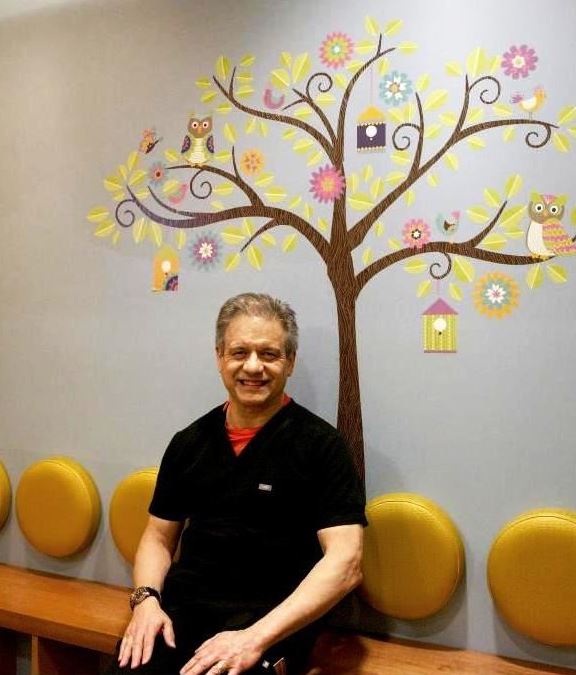posted
on 6/9/2021
in
Features
By REBECCA MCKINSEY r.mckinsey@carrollspaper.com Carroll Times Herald, June 8, 2021 HealthView
June is National Safety Month, and a major area of emphasis of the National Safety Council and similar organizations is child safety.
Dr. Thomas McAuliff, a pediatrician with St. Anthony Clinic, notes that there are several areas where parents should keep an eye out for their children’s safety.
A common concern is choking. McAuliff cautions that anything can be a choking hazard — no matter how big or small. But in general, he said, items that can fit inside a paper towel or toilet paper tube are more likely to be choking hazards.
“There’s no such thing as minimal risk,” he said. “It’s all or none.”
He urges people to learn CPR and learn how to respond to a choking child. He also recommends people call 911 if they’re at all concerned for a child’s safety.
“It’s better for the ambulance to come and find nothing than it is for them not to come and have a very bad outcome,” he said.
 McAuliff said it’s a myth that babies can’t choke — anything a baby finds can be a choking hazard. He sometimes recommends parents crawl around on the floor to gain a new perspective of the items their children can find or reach.
McAuliff said it’s a myth that babies can’t choke — anything a baby finds can be a choking hazard. He sometimes recommends parents crawl around on the floor to gain a new perspective of the items their children can find or reach.
But, he added, parents shouldn’t forget that kids also can climb on furniture or items.
“I’ve seen a 4-year-old on top of the fridge,” he said.
And parents shouldn’t assume that cabinet locks are child proof, he added — he’s seen kids thwart many “child-proof” locks.
Another common dangerous item is laundry pods or dishwashing pods, which are very toxic, McAuliff said.
He encourages people to have the number for Poison Control, 1-800-222-1222, on hand.
“They’d love to hear from you,” he said. “Don’t think you’re bothering them.”
Calling Poison Control can be helpful to determine if further treatment is needed — for instance, if a child accidentally ingests a over-thecounter painkiller, Poison Control will ask about the child’s weight and how much of the painkiller was swallowed to help advise whether parents should take the child to the hospital.
Another potential area of danger is houseplants — philodendron plants are one example of a plant that can cause various negative health effects in kids if they eat it.
Any solvents that kids might take in, such as gasoline, WD40 or other household cleaning sprays, should be kept where kids can’t access them.
For very young kids, avoid gummy vitamins or peanuts, McAuliff said. For toddlers, anything that takes a lot of effort to chew, such as steak, should be avoided. The same goes for foods that might make a child gag, such as citrus or pickles.
“Choking, it’s always been high on my list,” McAuliff said. “I’ve had kids who died from choking.”
Another common area of summertime safety is swimming.
“When it comes to summer safety, you’ve got to think of water safety,” McAuliff said. “That’s a really big risk.”
 He reminds parents that the majority of drownings in the United States occur at home pools or bathtubs, not at a public pool.
He reminds parents that the majority of drownings in the United States occur at home pools or bathtubs, not at a public pool.
As far as swimming safety goes, when kids are at a pool or especially when they’re on a boat, a life jacket is a must, McAuliff said.
“No child on the planet should be out without appropriate life vests,” he said. “Little rings with a horsie on them are very cute, but not safe. Water wings aren’t approved for anything.”
Additionally, he said, kids, particularly kids who can’t swim, shouldn’t be in the water without an adult.
At the pool, other safety concerns can include falling or choking, if children find small items.
Sun safety is important, McAuliff said, noting that parents should use a highSPF sunblock on their kids.
Hydration is vital on warm outdoor days as well.
“I’m not talking soda pop, I’m not talking Kool-Aid, I’m talking water,” McAuliff said. “Kids will beg you — I get that.”
Sports drinks typically have more sugar and aren’t the best choice for hydration either, he said.
At outdoor gatherings, another factor for parents to keep in mind is fire and heat safety at campfires or grills. McAuliff said he sees several children a year with a major burn from touching a grill.
McAuliff also reminds parents to use carseats, seatbelts or booster seats for their kids when driving.
“I don’t care how loud the kids get — don’t let them get out of their protective device,” he said.
Filter
- pediatrician
- pediatrics
- safety
- thomas mcauliff